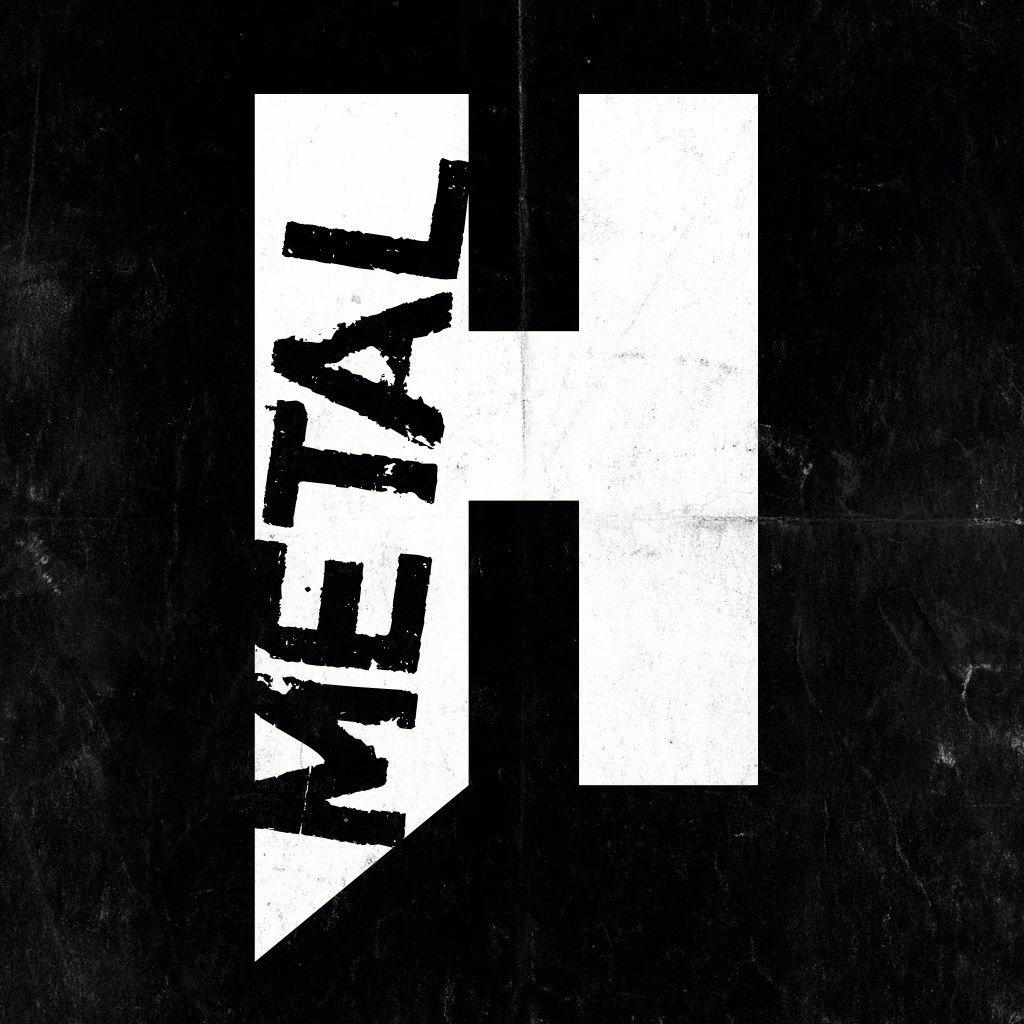The 50 greatest cult metal bands of all time
Stand aside Metallica and Slipknot - these are the cult metal bands who deserve way more love than they get
Select the newsletters you’d like to receive. Then, add your email to sign up.
You are now subscribed
Your newsletter sign-up was successful
Want to add more newsletters?

Every Friday
Louder
Louder’s weekly newsletter is jam-packed with the team’s personal highlights from the last seven days, including features, breaking news, reviews and tons of juicy exclusives from the world of alternative music.

Every Friday
Classic Rock
The Classic Rock newsletter is an essential read for the discerning rock fan. Every week we bring you the news, reviews and the very best features and interviews from our extensive archive. Written by rock fans for rock fans.

Every Friday
Metal Hammer
For the last four decades Metal Hammer has been the world’s greatest metal magazine. Created by metalheads for metalheads, ‘Hammer takes you behind the scenes, closer to the action, and nearer to the bands that you love the most.

Every Friday
Prog
The Prog newsletter brings you the very best of Prog Magazine and our website, every Friday. We'll deliver you the very latest news from the Prog universe, informative features and archive material from Prog’s impressive vault.
Cop Shoot Cop
Although integral to the early/mid-90s underground, Cop Shoot Cop’s stature has become dissipated somewhat, only because no particular scene could properly lay claim to them. Although they had roots in the nihilism of their native NYC’s no wave movement, their taut, claustrophobic urban paranoia made them natural allies of more metallic hometown contemporaries Unsane, Prong and Helmet.
Wracked by a self-awareness and sense of ultimate futility, the band’s industrial-laced, politically-charged invective also found kindred spirits in the likes of Grotus and Marxist rappers Consolidated. Seething with antagonistic intent, Cop Shoot Cop sounded like they were forging something startling from the wreckage of the modern world, given added sonic frisson by forgoing a guitar in favour of two basses. Their acerbic noise rock made a clear impact on Therapy?, who took them on tour in ’93.
Listen to: Coldest Day Of The Year (White Noise, 1991)
Ved Buens Ende
Although one of the lesser-known bands in the black metal canon, largely on the basis of having only one album to their name, Ved Buens Ende weren’t just instrumental in the scene’s shift into more avant-garde realms, but a seminal act whose reverberations are still felt today. A roving, Kurt Weill-esque lurch awash in spindly riffs and portentous, intoxicated vocals, 1995’s Written In Waters cast a hallucinatory spell throughout Norway and beyond. Akercocke, Voices and <code> incorporated the off-kilter narrative approach, while more blackened tracks such as Den Saakaldte sound like a blueprint for cosmonauts such as Blut Aus Nord.
Listen to: You, That May Wither (Written In Waters, 1995)
Treponem Pal
When these Parisians’ self-titled debut appeared in 1989, people focused more on their overt lyrical sexuality as opposed to their dystopian sound. Having a track entitled Soft Mouth Vagina will do that, though. With influences such as Foetus and Godflesh, they took industrial metal to pulsating, erotic territory. Their first three albums are small-c classics with fans, critics and peers (guitarists Michel Bassin and Laurent B joined Ministry for Lollapalooza ’92) and, led by sole original member, vocalist Marco Neves, they’ve continued their contemptuous spell with explorations of reggae, dub, techno and disco and stunts such as a revved-up cover of Funky Town.
Listen to: The Black Box (Treponem Pal, 1989)
Sign up below to get the latest from Metal Hammer, plus exclusive special offers, direct to your inbox!
Discordance Axis
This New Jersey trio formed in 1992, taking a grindcore base and adding elements of classical, blues, jazz and 70s prog to create something progressive, while Jon Chang’s lyrics were mostly inspired by animé. They were essentially a studio project and only toured in the US and Japan, which was where most of their fanbase were – and even there, records sales figures were only in the hundreds. Their final album, 2000’s The Inalienable Dreamless, would become a grindcore classic, but they split the following year. Drummer Dave Witte would go on to join thrash revivalists Municipal Waste.
Listen to: The End Of Rebirth (The Inalienable Dreamless, 2000)
Satan
The history of the New Wave Of British Heavy Metal is littered with bands that squandered or didn’t live up to their potential, but none of them had quite as much of the stuff as Newcastle’s Satan. Although they were more progressively minded than their peers, and had one of the scene’s greatest vocalists, Brian Ross, at the helm for their debut LP, 1983’s Court In The Act. His temporary departure and the various name changes over the years stalled their momentum, despite getting props from Metallica. Since reuniting in 2011, Satan have become revered once more by lovers of classic metal.
Listen to: No Turning Back (Court In The Act, 1983)
Manilla Road
The epitome of the true cult metal band, Kansas warriors Manilla Road remained in freakishly niche obscurity for decades, their epic sorcery proving too lurid and arcane for mainstream tastes, even in the 80s. After a string of killer records through the 80s – each steeped in mythological storytelling, their barbarian brawn tempered with a cerebral elegance – the band all but sat out the 90s altogether, as their legacy grew among crate-diggers and connoisseurs.
Regrouping in 2001 with a batshit concept LP about war in Atlantis between Thor, Odin, Poseidon and Cthulhu, the band were able to reap some long- overdue glory, releasing another eight albums and playing to audiences as devoted and euphoric as any Manowarrior. Founding guitarist/vocalist and bona fide metal legend Mark ‘The Shark’ Shelton died after a headline show at Germany’s Headbangers Open Air in 2018, bringing a 40-year career to a premature end, but on a glorious high.
Listen to: Necropolis (Crystal Logic, 1983)
Fudge Tunnel
There was something discordant yet controlled about Fudge Tunnel, which marked them out as unusual in the early 1990s. The Nottingham trio combined metal with an experimental excitement, and nothing sums up their appeal better than their 1991 debut album, Hate Songs In E Minor. In many ways, it mirrored what Melvins and Swans were doing in the States, but with a twist; they were noisy, vitriolic and dark, with an eccentric sense of humour.
Fudge Tunnel released three albums before splitting up in 1994, and only vocalist/guitarist Alex Newport has gone on to achieve success in the music industry. As a producer, he’s recorded bands such as At The Drive-In and The Mars Volta – not surprising, considering they both have a Fudge Tunnel influence running through their veins. The band might be long gone, but the Fudge spirit still runs deep.
Listen to: Spanish Fly (Hate Songs In E Minor, 1991)
Hum
Although the 1990s took many endearing, music-loving nerds and turned them into megastars, Hum weren’t ever interested in embracing the mainstream. Too esoteric for lovers of grunge, too heavy to be considered pure shoegaze and too self-effacing for radio and TV outlets, the eclectic Illinois four-piece never quite settled into a scene, yet their genius didn’t go unnoticed.
Distinctively thoughtful and musically ambitious, Hum became one of the most influential bands of the decade following their 1995 album You’d Prefer An Astronaut, which birthed their one chart hit, Stars. Here they explored sparkling planetary adventures and floating atmospherics, channelling shoegaze-inspired sounds through thundering guitar tones, and boldly throwing in introspective, romantic lyrics to enhance the dreaminess of the record.
Today, their influence can be heard in the likes of Deftones, Cave In, Nothing and Teenage Wrist, with many alt-rock outfits attempting to embody Hum’s hulking, distorted chords and lush musical expanses.
Listen to: Stars (You’d Prefer An Astronaut, 1995)
Death SS
One glance at a Death SS promo shot confirms how committed these Italian eccentrics were to pushing horror aesthetics in metal further, harder and more obsessively than any band before or since.
Formed in 1977, led by Steve Sylvester’s possessed rasp and the orgiastic guitar of Paul Chain, the mysterious bandmates presented themselves as Death, The Vampire, The Zombie, The Mummy and The Werewolf, pushing metal’s occult flirtation to the extreme with their own weird, creepy style on 80s underground classics like Horned God Of The Witches and Evil Metal; no wonder Tobias Forge keenly professes their influence on Ghost.
Listen to: Heavy Demons (Heavy Demons, 1991)
Current page: The 50 greatest cult metal bands ever
Prev Page The 50 greatest cult metal bands ever Next Page The 50 greatest cult metal bands everFounded in 1983, Metal Hammer is the global home of all things heavy. We have breaking news, exclusive interviews with the biggest bands and names in metal, rock, hardcore, grunge and beyond, expert reviews of the lastest releases and unrivalled insider access to metal's most exciting new scenes and movements. No matter what you're into – be it heavy metal, punk, hardcore, grunge, alternative, goth, industrial, djent or the stuff so bizarre it defies classification – you'll find it all here, backed by the best writers in our game.

